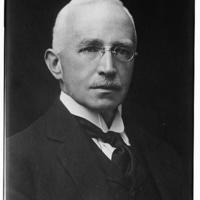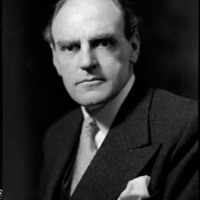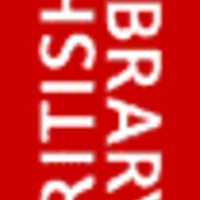First broadcast of the BBC Empire Service
Item
-
Edited Title
First broadcast of the BBC Empire Service
-
Archivist's Original Title
First broadcast of the BBC Empire Service
-
Original description
The inauguration of the British Empire Broadcasting Service features speeches from Mr. J.H. Whitley, the chairman, and Sir John Reith, the director-general of the BBC. The text outlines the significance of the occasion, the history of British broadcasting, and the goals of the Empire Broadcasting Service. Sir John Reith discusses the technical aspects, including transmission zones, wavelengths, and transmission times for different regions of the British Empire. The message emphasizes collaboration with listeners for feedback, program suggestions, and the importance of shortwave technology. Additionally, Mr. Ashbridge and Cpt Graves express gratitude for the assistance received during preliminary testing. https://www.bl.uk/collection-items/inauguration-of-bbc-empire-service British Library public link
-
Transcription
<p>This is London Calling, London calling the austroasian zone through GSD11750 kilo cycles, 25.53 meters, and GSC9585 kilocycles 31.3meters before beginning our first programme, mr J h whitley the chairman and St john reed, the director general of the BBC are going to speak to you. Mr Whitley will speak first and will be followed immediatley by sir john reeth. Mr J H whitley.</p><p> (01.30) Good evening everybody, my colleagues and I, the governers of the BBC send our warm greeting to listeners everywhere. For a long time we have been thinking of the possibility of an empire broadcast service. today we are happy to send out the first programme, remember it is only a beginning, for we depend on your cooperation to make the service better and better as time goes on. Much devoted work, thinking, planning and building, on the part of the director general and his staff has made this beginning possible. We shall spare no effort to make this service a real link between the homeland and the people overseas who share our heritage of speech and thought. This wireless, one of the great gifts of providence to mankind, is a trust of which we are humble ministers our prayer is that nothing mean or cheap may lesssen its value and that all its messages will bring happiness and comfort to those that listen, now i make way for sir john reith / to whom broadcasting owes a very great debt. his vision has been the main factor in the building up of the great service to which today we admit partners. </p>(3.25) <p>Good evening, ladies and gentleman, this occasion is as significant as any iin the 10 years of british broadcasting, it is a signifcant occassion in the history of the british empire. how significant, it would be unwise to forecast. a great deal of experiment has yet to be done. there are many troubles to overcome, some of these in the technical sphere may be worse than is at present realised. From today however, programmes will be broadcast regularly from the empire station, the experimental days of broadcasting as such are over. there must be few in any civilized country, who have yet to realise that broadcasting is a development with which the future must reckon and reckon seriously. the more consideration given to it today, the more experience gained, the more it will be realised that here is an instrument of almost incalculable importance in the social and political life of the community. its influence will more and more be felt in the daily life of the individual, in almost every sphere of human activity in affairs national and international. now it becomes a connecting and coordinating link between the scattered parts of the british empire. here at home, from the earliest days it has been our resolve that the great possibilities and influences of the medium should be exploited to the highest human advantage. it matters little in order what puts its various funcitons, the service as a whole has, and is dedicated to the best interests of mankind. if we succeed in dispelling some of the isolation and lonliness which is the lot of so many of our kindred overseas. if we bring to them and to others some share of the ammenities of the homecountry and of metropolitan intersts and cultere. which for one reason or another which may not be fully available. if we can induce among the constituant parts of the empire a greater understanding and a greater sympathy, if we can broadcast at home some programmes from overseas, if we can in general as is our hope, the several far scattered units of the family drawn closer together. Then our efforts which culminate in a preelimanry sense today and definetley in the afternoon of Christmas day when his majesty the king for the first time will speak to the empire as a whole. then i say our efforts are amply rewarded. It is many years since we first we thought in terms of empire broadcasting and it should be noted that we always did so of in terms of an exchange between the dominions and colonies and ourselves. 4 years ago an experimental station began its tests, 2 years ago we felt ourselves to be in a position to make concrete proposals to the empire and colonial conferences for financial and technical reasons these proposals could not be fully endorsed. Last year we decided to that the matter was of such importance as to admit no further delay. British prestige was at stake and now a short explantion to the preeliminary plans. everyday a series of programmes will be sent out to all parts of the empire, somewhat between 5 afternoon and midnight local time we have assumed thios to be the most convinient period for listening, although it is not the best technically. for this purpose, the empire has been divided into 5 time zones. and a seperate transmission will be sent to each, if a transmission is intended for reception in a certain limited area, it is obviously wasteful to broadcast in all directions. each transmission will therefor be directional. thus more energy will be given in a particular direction as required then if the transmission was literally broadcast allround. further we have arranged to broadcast on various wavelengths to each zone in order to meet the changing seasonal and physical conditions which will be encounterd. in general therefore, each zone has 2 or 3 aerial arrays, each array designed for a particular wavelength and a particular zone. the zone transmission may eventually overlap each other to some extent. but this will not happen in the early stages. since we are sending only 2h of programmes to each. we have installed 2 transmitters so that programmes to two zones can ultimately be sent simaltaneously. apart from this, to cover the desireability of occasinal transmitting to all zones at once, we have provided a number of omnidirectional aerials, one for each wavelength likeley to be used. the empire station you will see is fairly fully equipped. it experienced ___ if necessary and if financial circumstances improve, additional plans can easily be installed. to enable us to consider improvements and modifications and we know that some will be necessary. we are entirely dependant on reports from overseas based on careful observations, the longer the period covered the more valuable they will be. and we ask you to collobarate with us in this respect. as to programmes, dont expect too much in the early days. for smetime we shall transmit comparatively simple programs to give the best chance of intelligible reception and provide evidence as to the type of material most suitable for the service in each zone. the programs will neither be very interesting or very good. we must broadcast material of all sorts and checkup zone by zone how it is received and then the program material will be altered so as to give better results. the hours we have chosen are as follows: these are given in GMT, for the austrailian zone 9.30-11.30 am, for the indian zone 2.30 in the afternoon to 4.30 - african zone 6-8 in the afternoon, the west african zone 8.30 to 10.30 and the canadian zone 1 in the morning to 3. i should leave you to turn these into your various local times. but it should never be earlier than 5 in the afternoon or 12 midnight. eventually we expect and hope to fill these 2h with programmes that will satisfy our oversseas listeners, but in this respect also, a great deal of evidence is needed by us before we can be certain what to do. i hope you will feel that we are doing all we can here. at any rate, you will be in no doubt as to which the immense interest and enthusiasm which we feel with respect to this new service. without your cooperation progress will be slow and unsatisfcatory. the rate of progress, the satisifcation to be derived from the service, will be determined by the measure of your cooperation by the volume of suggestion and constructive criticism both of a technical and of a general nature, recieved from you. apart from technical information, we want to know the kind of material you would like to have from us and the time. but please remember the limitations of short wave work. for it may be necessary for you to confine your suggestions, to that type of program which experience shows to be capable of good transmission to your own zone. i suppose we are considering primarily those who posses short wave recieving sets and who are out of touch with local broadcasting organisations. but we shall also expect and welcome requests from overseas broadcasting organisations. to relay our programmes. and now we send you greetings from london and from broadcasting house and the bbc in particular and we believe this to be the beginning of an association, happy and useful and important in the annales of empire. now just a word from mr ashbridge, the chief engineer and cpt graves, the empire service director. (14.30) i want to take this oppurtunity of thanking all those who sent in reports on the preeliminary tests which we have been carrying out during the pst few weeks we have recieved over 300 cable grams and nearly 1000 letters and although we are acknowledging each one individually. i should like to express my thanks on this occasion. (15.17) mr ashbridge has just thanked you for the help he has already recieved during the preeliminary testing period, as the official who is responible for the programmes which will be transmitted from the british empire station i cannot as of yet follow his example. i am hoping however that before many weeks have passed i shall be in a position to do so, and that i shall recieve many letters of suggestion with regards to the eventual construction of your program, please do not hesitate to write, i need your help and cooperation.</p>
-
Recording date of the original material
-
Holding Institution of Original Materials
-
Description
In this clip, John Reith, the founding director general of the British Broadcasting Corporation (BBC), opens the first programme of the BBC Empire Service. The service went on air at 9:30am on Saturday 19 December 1932, and Reith’s address was read out five times over the day to reach different parts of the world. Expectations of the service were initially low; in the recording, Reith warns that in the early days, ‘the programmes will neither be very interesting, nor very good’. But he also celebrates radio broadcasting as ‘an instrument of almost incalculable importance in the social and political life of the community’. What was the BBC Empire Service? At its inception, the BBC Empire Service was an English-language radio broadcast service that was initially established to link up English-speakers in the far reaches of the British Empire. Programmes were originally reused recordings from the BBC’s home radio service. The service quickly started broadcasting its own news and music programmes, and in 1938, started broadcasting in other languages. Over the years, global developments, conflict, and decolonisation influenced the broadcasting service to have a broader international focus. In 1939 the service changed its name to the General Overseas Service to reflect its growing expansion brought on by the Second World War. In 1965, it changed it again to what we now know as the BBC World Service, currently broadcasting in over 40 languages over TV, radio and online.
 J H Whitley
J H Whitley John Reith
John Reith
